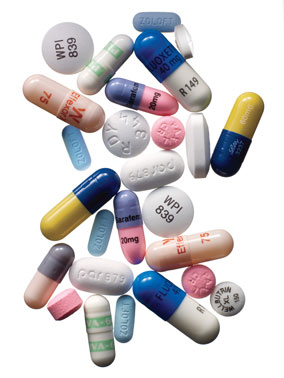
London: People suffering from depression are getting few benefits from drugs to treat their symptoms, researchers at a UK university have concluded.
Researchers at the University of Hull analysed studies of thousands of patients on some of the most widely-prescribed drugs such as Prozac, Seroxat and Efexor – to discover that they may as well take “placebos”.
They said the drugs were only effective in improving the mental health in extreme cases.
The study, which has been published in the journal PLoS Medicine, suggests hundreds of thousands of Britons are needlessly taking powerful – and potentially dangerous drugs.
Their report has also been handed to the US’s Food & Drug Administration.
A number of serious side-effects have been associated with these drugs including suicide and suicidal thoughts, side-effects which are known as SSRI (Selective Serotonin Reuptake Inhibitor) anti-depressants. Other side effects have included self harm to anxiety, insomnia, nausea, headaches and vomiting.
Seroxat alone has been linked to at least 50 suicides – both adult and child – in the UK since 1990.
The research comes as prescriptionsfor anti- depressants are at record levels, with 31million written in 2006 at a cost to the NHS of almost £300million. Around half of these were for Prozac, Seroxat, Efexor and other SSRIs.
Researcher Professor Irving Kirsch said: ‘Given these data, there seems little evidence to support the prescription of anti-depressant medication to any but the most severely depressed patients, unless alternative treatments have failed to provide benefit.’
Professor Kirsch, a psychologist, reached his conclusion after combining the results of 35 clinical trials involving more than 5,000 patients with depression.
Two-thirds of those taking part in the studies were prescribed the SSRIs, while the remainder took placebo tablets.
Comparison of the two groups showed that in the majority of cases the mental health of those taking anti- depressants improved little more than those on dummy pills.
Only those who were extremely depressed – a very small proportion of those studied – fared substantially better when on medication.
The results suggest that those taking the tablets mainly benefit from the ‘placebo effect’ – in which symptoms are eased not by medication but by relief in diagnosis and the simple expectation a treatment will work.
